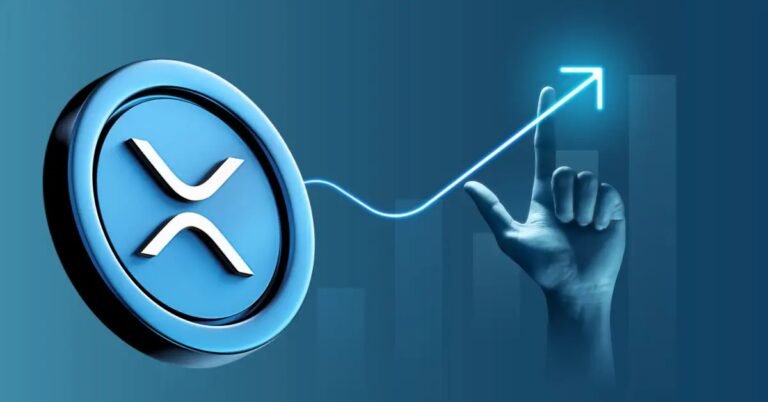With the explosive growth of cryptocurrencies over the last decade, XRP—developed by Ripple—has emerged as one of the most discussed digital assets in the market. Whether you are a seasoned investor, blockchain enthusiast, or a curious beginner, you might be wondering, “Should I buy XRP?” This guide breaks down its use cases, market performance, risks, and potential, helping you make a better-informed decision.
Table of Contents
What Is XRP?
XRP is the digital currency created by Ripple Labs to facilitate fast, affordable cross-border payments. Unlike Bitcoin, which primarily serves as a store of value, XRP was designed for a specific purpose—to act as a bridge currency for global financial transactions. Banks and financial institutions use XRP through Ripple’s network to reduce the time and cost associated with traditional payment systems like SWIFT.
Key Features of XRP:
- Speed: XRP transactions take about 3 to 5 seconds to settle, making it one of the fastest digital assets.
- Low Transaction Fees: Fees typically cost a fraction of a cent.
- Scalability: The network can handle up to 1,500 transactions per second (TPS).
- Energy Efficient: Unlike Bitcoin’s Proof of Work (PoW), XRP uses a Consensus Ledger mechanism, which consumes significantly less energy.
The Case for XRP
1. Established Partnerships with Financial Institutions
Ripple has partnered with hundreds of banks and payment providers worldwide, including Santander, Standard Chartered, and SBI Holdings. XRP plays a pivotal role in Ripple’s On-Demand Liquidity (ODL) service, enabling instant currency swaps between countries. These collaborations add credibility to Ripple’s technology and create real-world use cases for XRP.
2. Market Performance
XRP is consistently ranked among the top cryptocurrencies by market capitalization. Below is a snapshot of its historical performance:
| Year | Lowest Price (USD) | Highest Price (USD) | Market Rank |
|---|---|---|---|
| 2020 | $0.11 | $0.78 | #3 |
| 2021 | $0.17 | $1.96 | #6 |
| 2022 | $0.30 | $0.91 | #6 |
| 2023 YTD | $0.32 | $0.86 | #6 |
Note: Despite its ups and downs, XRP has retained its position as one of the top-performing cryptocurrencies due to its large user base and wide adoption.
3. Ripple’s Legal Battle with the SEC
Ripple has been locked in a lawsuit with the U.S. Securities and Exchange Commission (SEC) since late 2020. The SEC claims that XRP is an unregistered security, creating legal ambiguity surrounding the token. However, Ripple won a partial victory in July 2023 when a U.S. judge ruled that XRP is not a security when traded on secondary markets (exchanges).
This victory injected optimism into the market, driving higher investor confidence. If Ripple fully prevails against the SEC, XRP could see significant price appreciation due to increased demand and reduced regulatory uncertainty.
Risks of Investing in XRP
Before you consider buying XRP, it’s important to weigh the risks associated with this cryptocurrency.
1. Regulatory Risks
The SEC case highlights the broader regulatory uncertainty in the crypto industry. While Ripple has secured partial victories, future developments could sway the market either positively or negatively.
2. Competition from Other Cryptocurrencies
Stablecoins (like USDT and USDC) and emerging blockchain payment networks are fierce competitors. XRP must continue to innovate to maintain its relevance in a rapidly evolving ecosystem.
3. High Volatility
Cryptocurrencies, including XRP, are inherently volatile investments. Prices can fluctuate dramatically based on news, legal outcomes, and market sentiment. Investors must be prepared to handle this volatility.
Should You Buy XRP Based on Its Current Outlook?
The decision to buy XRP largely depends on your financial goals and risk tolerance. Here are some scenarios to consider:
- You should consider buying XRP if:
- You believe in Ripple’s long-term vision for revolutionizing cross-border payments.
- You are comfortable with the risks associated with market volatility.
- You are seeking a cryptocurrency with real-world use cases and established partnerships.
- You might want to reconsider if:
- You’re risk-averse and prefer stable investments.
- You’re uncertain about the regulatory landscape for XRP’s adoption globally.
Remember, diversification remains a key principle in crypto investing—don’t put all your eggs in one basket.
FAQs about Buying XRP
1. Is XRP a good investment in 2025?
XRP has solid use cases and adoption by financial institutions, making it an attractive option for long-term investors. However, short-term market fluctuations and regulatory risks should be considered.
2. Where can I buy XRP?
You can buy XRP on major cryptocurrency exchanges like Binance, Coinbase, Kraken, and KuCoin. Ensure the platform you choose supports your local currency and provides secure options for storage.
3. Is XRP better than Bitcoin?
It depends on your investment goals. While Bitcoin is widely regarded as “digital gold,” XRP excels in enabling fast and cost-effective cross-border transactions. They serve different purposes within the crypto ecosystem.
4. Can I stake XRP to earn rewards?
Currently, XRP does not natively support staking. However, some exchanges and platforms may offer lending or similar services that generate interest on your XRP holdings.
5. What’s the best wallet for storing XRP?
You can securely store XRP in wallets like Ledger Nano X (hardware), Exodus (desktop/mobile), and Trust Wallet (mobile). Use wallets that support XRP-specific features like destination tags for transactions.
Final Thoughts
XRP represents a unique opportunity in the cryptocurrency market due to its real-world utility, strong partnerships, and Ripple’s vision for disrupting global financial systems. However, the associated risks—especially from regulatory pressure—cannot be ignored.
If XRP aligns with your investment strategy, now could be a good time to buy. But as always, do your own research and only invest what you can afford to lose.
Looking for broader insights or other crypto investment opportunities? Stay updated by subscribing to our latest cryptocurrency guides and analyses.

